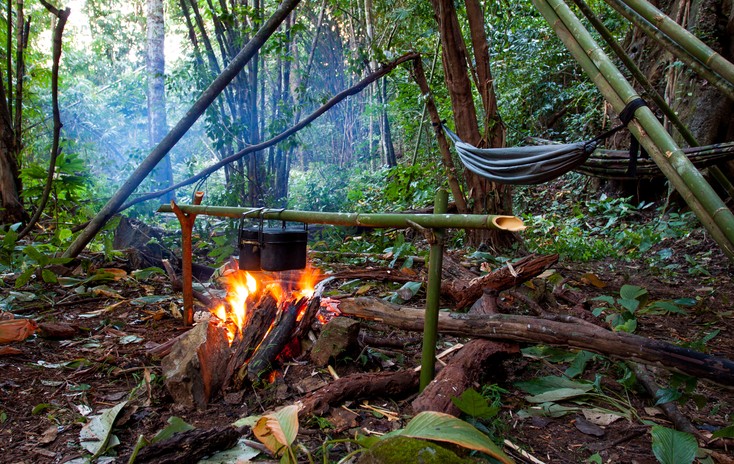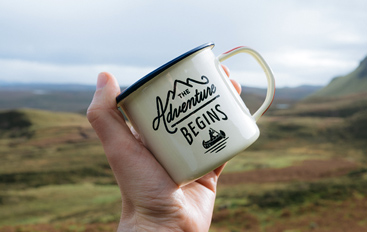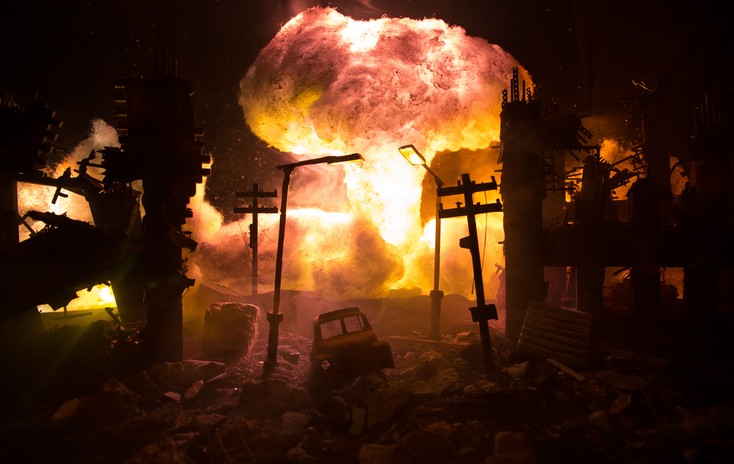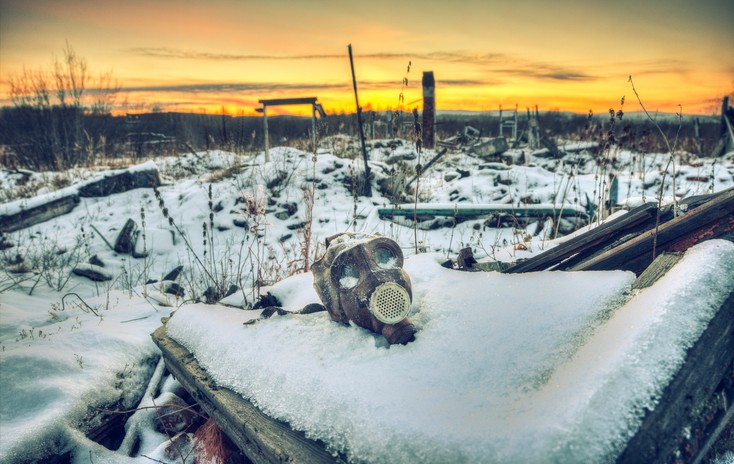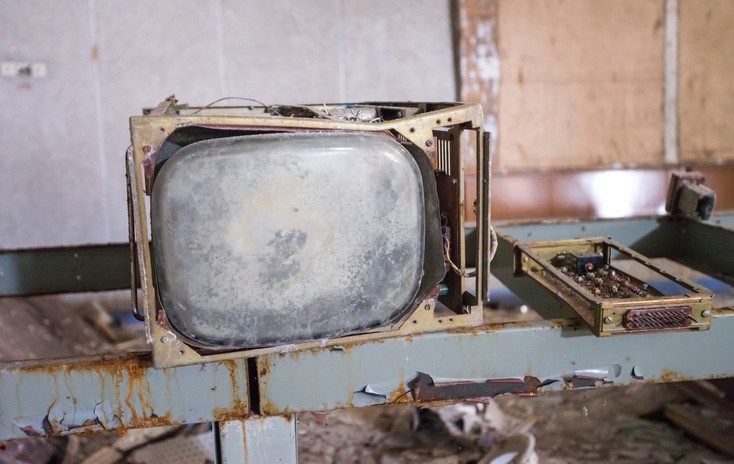
What is Prepping - A Guide to Get Started
Many people are familiar with the idea of preppers from the media and shows like "Doomsday Preppers". There is often the idea that preppers are a bit of a loony bunch. It doesn't help that this idea is sometimes deliberately emphasised and taken advantage of (for example, to make a TV series more sensational). However much of the nuts and bolts of what constitutes prepping is a lot more down to earth and realistic than the majority of public awareness so far.
A major aim of this Prepping Web Magazine is to try to help make prepping more mainstream and ordinary. Something that normal people do. Ideally, everyone. (Though I suspect this may take a while... and perhaps a very long while). However, before this happens, don't be too concerned about what most other people think. You don't even need to tell anyone that you're a prepper. In fact it's often regarded as a very good idea not to tell others you're a prepper.
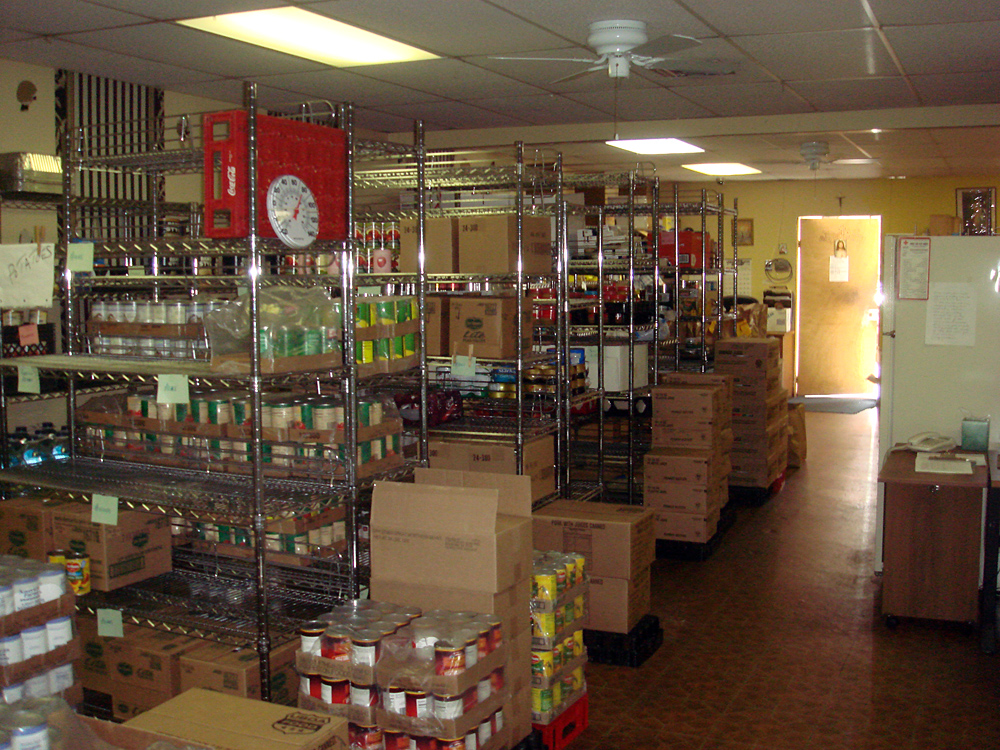
Many preppers keep stores of food and other essential items for emergency use, and aren't keen on advertising that they're preppers. Photo of a (non-prepper) soup kitchen pantry by Nancy Heise / Wikipedia. Many people today have large spaces in their homes and/or garages which are currently used for entertainment, to stop their car's paint from fading, or other non-essential purposes. With enough motivation, these kinds of spaces can easily be put to other uses.
So in fact there may be a lot more preppers out there than anyone realises. In fact the next person you see might even be one. And without you nor most other people they know having any idea. Of course some aspects of prepping are more difficult to hide than others - but we'll get to that later in other articles on this site.
So What Is Prepping?
Prepping may be defined as the deliberate (and ideally, but not necessarily, somewhat systematic) act of preparing for the future.
Usually it's implied that the future being prepared for will be worse than your current one. Especially in terms of the economic, political, technological, and social stability of modern society. Though of course this does not have to be the case — the future may turn out better for various planned or unexpected reasons. Generally though, the focus is on preparing yourself and your life for events that may cause disruption.
Wikipedia says that:
"Prepping is a movement of individuals or groups (called survivalists or preppers) who are actively preparing for emergencies, including possible disruptions in social or political order, on scales from local to international.
Preppers often acquire emergency medical and self-defense training, stockpile food and water, prepare to become self-sufficient, and build structures (e.g., survival retreats or underground shelters) that may help them survive a catastrophe."
The type(s) of disruption you choose to prep for can be anything — out of a hugely wide range of future possibilities. Anything, from losing your job to nuclear war and the end of modern life as we know it, is fair game. As you learn more about prepping, you can decide which particular events you wish to prep for, and to what extent. As you go, you'll learn more about yourself, your abilities, and your interests. And as you change, you can change your focus, direction, and priorities along the way.
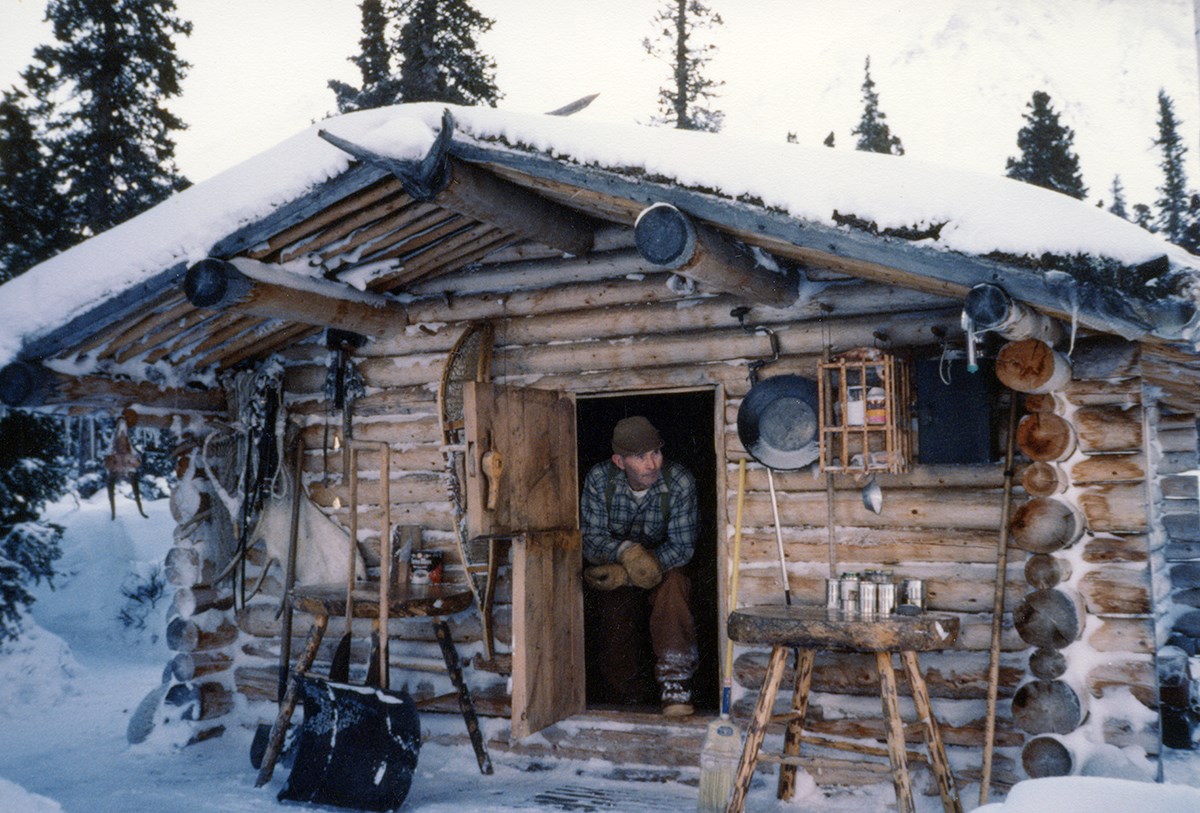
Preppers learn how to do a lot with a little. Richard L. Proenneke's cabin at Upper Twin Lake, Alaksa, stands out for the remarkable craftsmanship that reflects his unshakable wilderness ethic. He built the cabin using only hand tools, many of which he fashioned himself. US NPS photo taken by Richard Proenneke and donated by Raymond Proenneke.
We're All Beginners
In prepping, never be concerned that you're "only" a beginner. In many ways, it's actually very good to feel like you're a beginner. That's because what some people call the "beginner's mind" is a very useful thing to have when you don't know what the future will be like, and there's a lot more for you to learn and to do.
In this situation, it's very good if you know that you know there's a lot more to learn, (since there is a lot more to learn) — and it's very good if you're used to knowing that, and feeling okay about it. That's a much better situation than if you feel like you're an expert — because you are an expert in a few specific areas — yet there are still many more things to learn which you aren't covering because you feel like you're already an expert.
"All preppers are beginners, but some preppers are more beginners than others."
George Orwell, 1945 (wording slightly modified ;)
Note that this advice may not apply to you if you've already survived and thrived in an all-out nuclear war, or "the end of the world", "Armageddon", or anything else extreme enough to convince you that you're totally an expert and you don't need to know anything else (apart from elite high-level information that's reserved for other complete experts).
In this field (including what's portrayed in the media) you'll discover that there's a lot of emphasis on being an expert. It's good to have goals to be motivated towards, including becoming more skilled and more prepared than you already are. However the essentials of prepping are much more mundane and grass-roots-level than the "Wow look at me, I'm a big star/expert" level that gets the most attention.
I actually think that this emphasis on experts does more harm than good. Although it provides some entertainment, and even some genuine motivation, it's greatest effect is to make ordinary people think that all this is too hard, too out there, too frightening, too crazy, too "Rambo", and just too much effort to be worth bothering with. And not something for ordinary, everyday, average people.

A lot of prepping is about learning the basic skills of living that ordinary, average people knew in the days before modern technology. You don't need all the talent and training of an elite special forces agent. Photo of Sylvester Stallone as John Rambo by Yoni S.Hamenahem / Wikipedia.
Some people are afraid, very afraid, of the idea that there's a whole lot of perhaps very important things that they need to know and do, that they don't know how to do. And perhaps never will. This is only natural. Obviously, some of the things preppers prepare for may be frightening.
The problem is that often this fear is what keeps a lot of people from bothering at all with prepping. It seems much easier to just forget about it, and get on with familiar modern life as you know it. However, this is far from the best option. Gavin de Becker, author of the book "The Gift of Fear", says that "Denial is a save-now-pay-later scheme".
However fear is a natural emotion, which was given to us (either by God or by biology, depending on your beliefs) for a reason. It's a tool. Like most tools, the first thing to do with it is learn how to use it. The thing with fear is learning to use it to improve things for yourself and others. Rather than allowing it to become a problem in itself, because you've never learned (nor been taught) how to use it. This will be addressed in other articles on this website. For now, try to get used to the idea that it's possible to learn to overcome — and even to wildly succeed — in areas of life you may have been too stressed about, afraid of, or failed at in the past.
In summary, don't stress about not knowing stuff. It will be okay. Just keep following on with what you're doing right now (learning about the basics of prepping), and maintain your interest, and follow through with it.
Preppers are Individuals
I'm an individual - you can't fool me,
An indi-bloody-vidual - you can't fool me,
A genuine original - you can't fool me,
I keep an open mind 'cause I'm thinkin' all the time.
Preppers are Community Minded
In a crisis situation, people who try to gather up a lot of things for themselves are called "hoarders". This is not a complimentary term, because there's less to go around for everyone else. Preppers aim to gather up things before a crisis happens. That way, more of the important things needed for the future will be produced, while conditions are still good.
Again drawing on the collective wisdom of Wikipedia,
Use of the term survivalist (a.k.a. prepper) dates from 1976. The survivalist focuses on living through dangerous situations, and helping their community in the process
Short Term or Long Term Planning?
Since no-one knows exactly when a severe crisis will begin, we don't know how much time there is remaining for us to live our (relatively speaking) comfortable modern lives. Odds are there will be a while, perhaps several years, or even a decade or more. Although it probably won't, it's possible that society will collapse tomorrow. Or even this afternoon. Or even while you're reading this web page. How prepared for that would you be right now?
So it's good to give some thought to how you would plan for both short-term and long-term disaster situations. Because, for most people in modern society, your plans will be quite different depending on how long you have left to prepare.
Short-Term
For example, if you knew for a fact that society was going to collapse tomorrow, you might phone a relative in the country and ask if you can go there, and then drive to the nearest shopping centre and panic-buy as many essential items as possible.
If you'd already planned (and perhaps stocked up) a retreat location, you'd be travelling there. If you had a route planned out already, perhaps with caches (places where you've hidden essential items) distributed along the way, that would be an advantage. You may have planned different methods of travel, depending on if roads were open and vehicles still operating, or not. You may have planned to stay where you are, or end up doing that anyway out of necessity.
For all of us but the absolutely most prepared, there would be last minute things to attend to that would be a lot different to what you'd be doing tomorrow on an ordinary day of modern life. Like tomorrow is most likely going to be.
Long-Term
However, if you knew for a fact that society was going to collapse in exactly ten years from now, you'd have a lot more options, and very different immediate plans.
You'd want to look at what kinds of locations would be best suited to life in a collapse. Generally speaking these will be rural locations — since the access to essentials like food and water per head of human population is far greater. You could think about how you might go about moving to a rural area over the next few-several years.
If that idea seems completely unrealistic — perhaps unimaginable even — you could think about how you might go from thinking the way you do now, to thinking in a completely different way that would value, appreciate, and enjoy the kinds of things that will be valuable and enjoyable in the future (after modern society is no longer able to provide you with value, nor enjoyment).
You might train in a completely different career if your current one couldn't be done in a rural location. Or you might plan to save up enough money in your urban job to be able to buy somewhere rural in a few years time. You could make travel plans to check out different areas and decide where you'd like to be living, and stay living, once you can't move around easily (or at all) again...
And travel plans to visit places where people already live in less industrialised ways, and learn from them. You could plan to take all kinds of courses to acquire skills that will be useful for life without modern society.
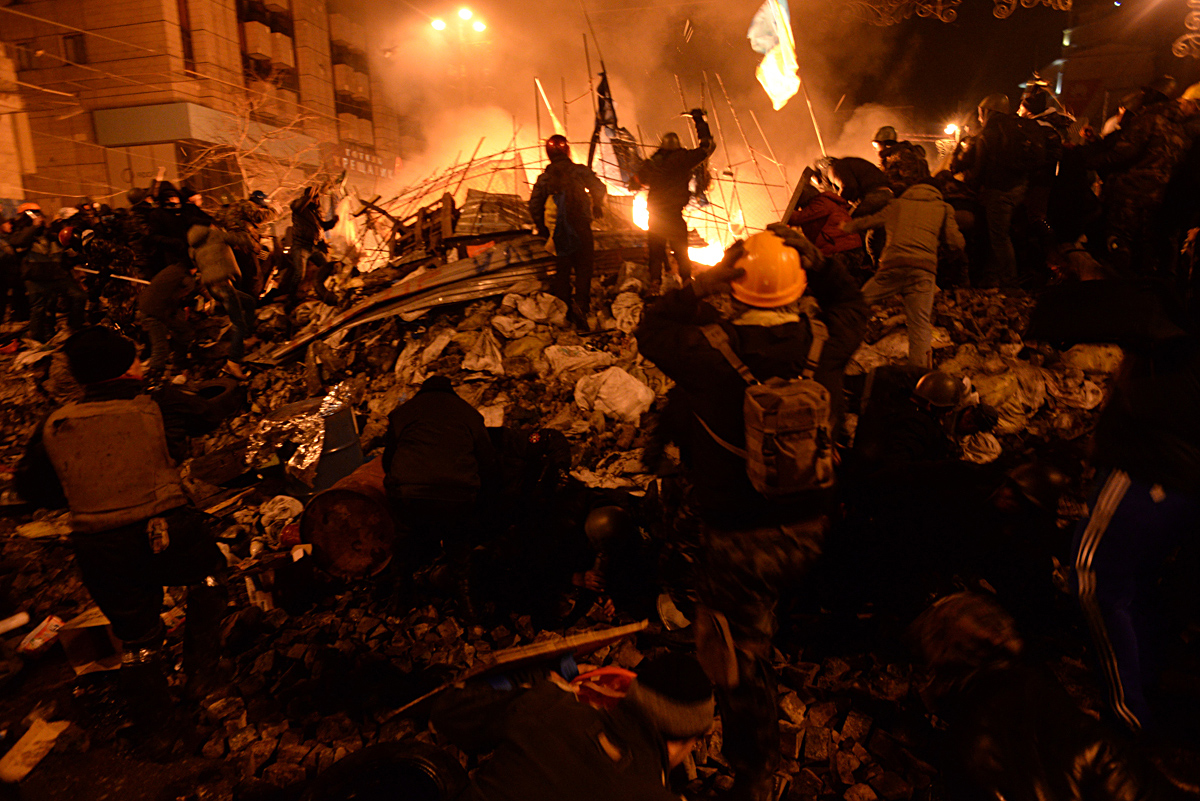
A major aim of prepping is to avoid becoming a refugee in a collapsed economy/government. Photo by Mstyslav Chernov / Unframe / Wikipedia. Protesters fighting government forces during the Ukrainian revolution of 2014.
A major aim of prepping is to avoid becoming a refugee in a collapsed economy and/or government. A secondary aim of prepping is learning how you might survive if you do become a homeless refugee in a collapsed and/or war-torn area. However, it's clearly by far the best option to plan your life to avoid this situation as much as you possibly can. Unless perhaps you deliberately want to become a refugee for some reason (perhaps as a missionary or something) — however that kind of calling is a niche appeal, and clearly not something for everyone.
Short-Term and Long-Term
Since we don't know how much longer modern society has left, you can consider what to do in the short-term and the long-term (and medium-term) collapse scenarios. You could drive to the shops tonight (or sometime soon) and buy up on some essential items. If you don't have a car you could order online. If the average person has enough food for a few days, even having enough for a week or two is an improvement. Having enough for a month is a huge improvement.
Starting Small
Start small and work up from there. Beginning with one basic need at a time, and then expanding your learning, your plans, and your actions.
Imagine if the water supply were to permanently go off tonight. How much fluid do you have available that you can drink? Considering that you need approximately 2 litres per person per day (just for drinking, not washing or anything else), how many days of supply cutoff could you last? (This is assuming everyone else's water is cut off also, and you can't just go next door, or down the road to the park and turn on the tap). If you live an average urban or suburban life, even having 10 or 20 litres of water on hand is going to be an absolutely massive advantage compared to having maybe a litre of milk and half a bottle of cola in the fridge, and nothing more. Having a few hundred litres would seem like heaven, comparatively. [More about water]
Also, you could start to think about (and study) what kinds of options there are for the longer term.
These are some of the kinds of things that preppers think about and plan for.
Next page: How to Use this Site — When All Else Fails, Read the Instructions.
Prelude to Catastrophe The world had been teetering on the edge of conflict for years. Political tensions, economic rivalries, and territorial disputes had escalated, creating a global atmosphere of distrust and fear. Nations fortified their borders...
Nuclear Winter
A nuclear winter is a theoretical scenario that would follow a large-scale nuclear war, characterized by severe and prolonged climatic cooling and other catastrophic environmental effects. Here's what it might be like: ...
Movies and Video About Nuclear War
Here are some online videos that are recommended for preparing to survive nuclear war, and general nuclear war and nuclear bomb information: Protect and Survive ...

 Welcome to Prepping.com.au, the new web magazine.
Welcome to Prepping.com.au, the new web magazine.
 What is Prepping? A guide for normal people to get started.
What is Prepping? A guide for normal people to get started.
 How to use this site. When all else fails, read the instructions.
How to use this site. When all else fails, read the instructions.
 This is your mission, should you choose to accept it.
This is your mission, should you choose to accept it.



